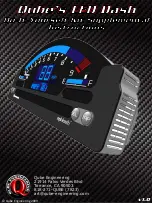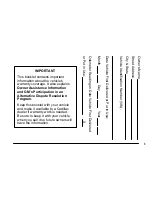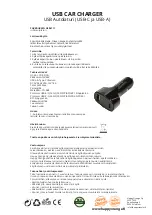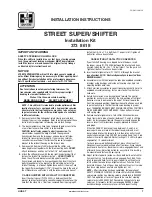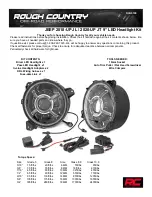
curbs, speed humps or similar elevations, try
to do so slowly and at an obtuse angle. Oth-
erwise, the tires, particularly the sidewalls,
may be damaged.
Regular checking of wheels and tires
G
WARNING
Damaged tires can cause tire inflation pres-
sure loss. As a result, you could lose control of
your vehicle. There is a risk of accident.
Check the tires regularly for signs of damage
and replace any damaged tires immediately.
Regularly check the wheels and tires of your
vehicle for damage at least once a month, as
well as after driving off-road or on rough
roads. Damaged wheels can cause a loss of
tire pressure. Pay particular attention to dam-
age such as:
R
cuts in the tires
R
punctures
R
tears in the tires
R
bulges on tires
R
deformation or severe corrosion on wheels
Regularly check the tire tread depth and the
condition of the tread across the whole width
of the tire (
Y
page 309). If necessary, turn the
front wheels to full lock in order to inspect the
inner side of the tire surface.
All wheels must have a valve cap to protect
the valve against dirt and moisture. Do not
mount anything onto the valve other than the
standard valve cap or other valve caps
approved by Mercedes-Benz for your vehicle.
Do not use any other valve caps or systems,
e.g. tire pressure monitoring systems.
Regularly check the pressure of all the tires
particularly prior to long trips. Adjust the tire
pressure as necessary (
Y
page 311).
Observe the notes on the emergency spare
wheel (
Y
page 339).
The service life of tires depends, among other
things, on the following factors:
R
Driving style
R
Tire pressure
R
Distance covered
Notes on tire tread
G
WARNING
Insufficient tire tread will reduce tire traction.
The tire is no longer able to dissipate water.
This means that on wet road surfaces, the risk
of hydroplaning increases, in particular where
speed is not adapted to suit the driving con-
ditions. There is a risk of accident.
If the tire pressure is too high or too low, tires
may exhibit different levels of wear at differ-
ent locations on the tire tread. Thus, you
should regularly check the tread depth and
the condition of the tread across the entire
width of all tires.
Minimum tire tread depth for:
R
Summer tires:
â
in (3 mm)
R
M+S tires:
ã
in (4 mm)
For safety reasons, replace the tires before
the legally prescribed limit for the minimum
tire tread depth is reached.
Marking
:
shows where the bar indicator for
tread wear (arrow) is integrated into the tire
tread.
Treadwear indicators (TWI) are required by
law. Six indicators are positioned on the tire
tread. They are visible once a tread depth of
Operation
309
Whe
el
s
and
tire
s
Z
Summary of Contents for 2016 SLK
Page 4: ......
Page 40: ...38 ...
Page 96: ...94 ...
Page 138: ...136 ...
Page 194: ...192 ...
Page 255: ...Useful information 254 Stowage areas 254 Features 256 253 Stowage and features ...
Page 276: ...274 ...
Page 308: ...306 ...
Page 356: ...354 ...
Page 357: ...355 ...
Page 358: ...356 ...































